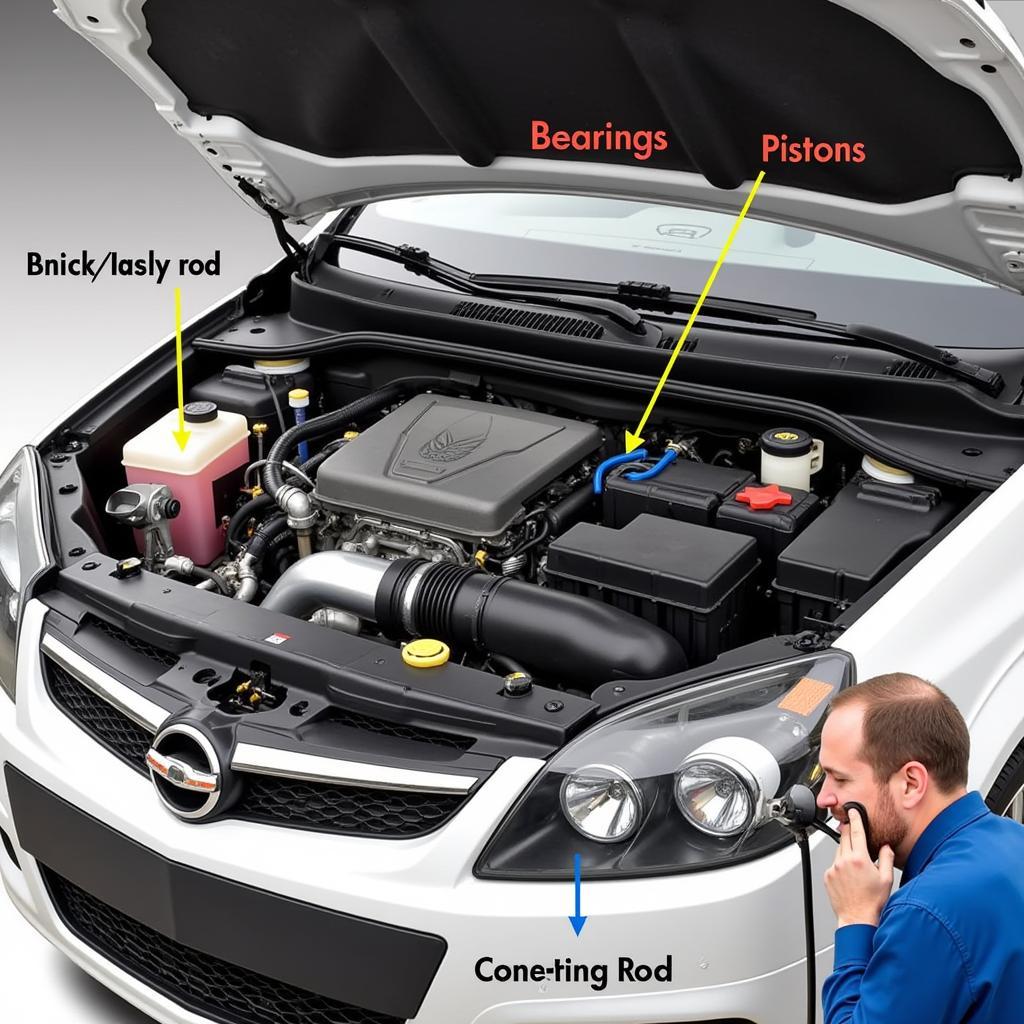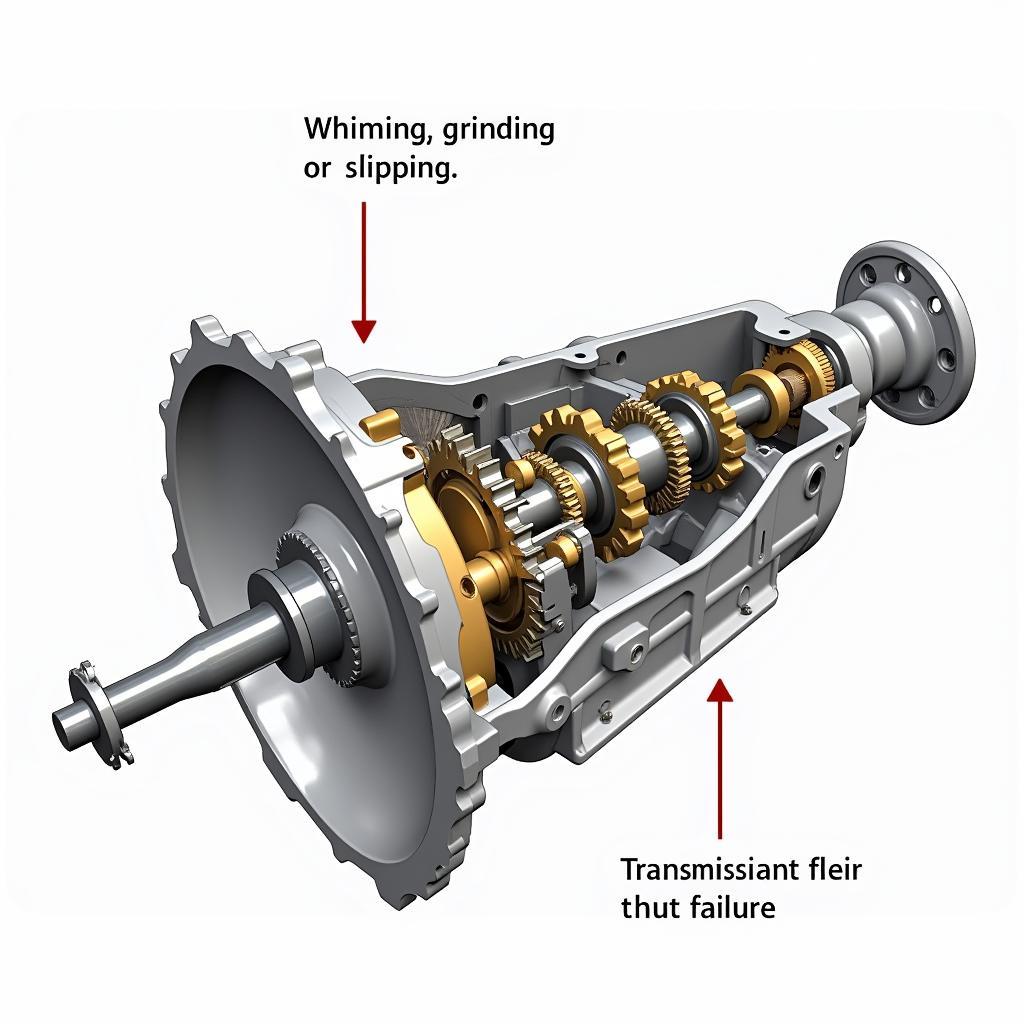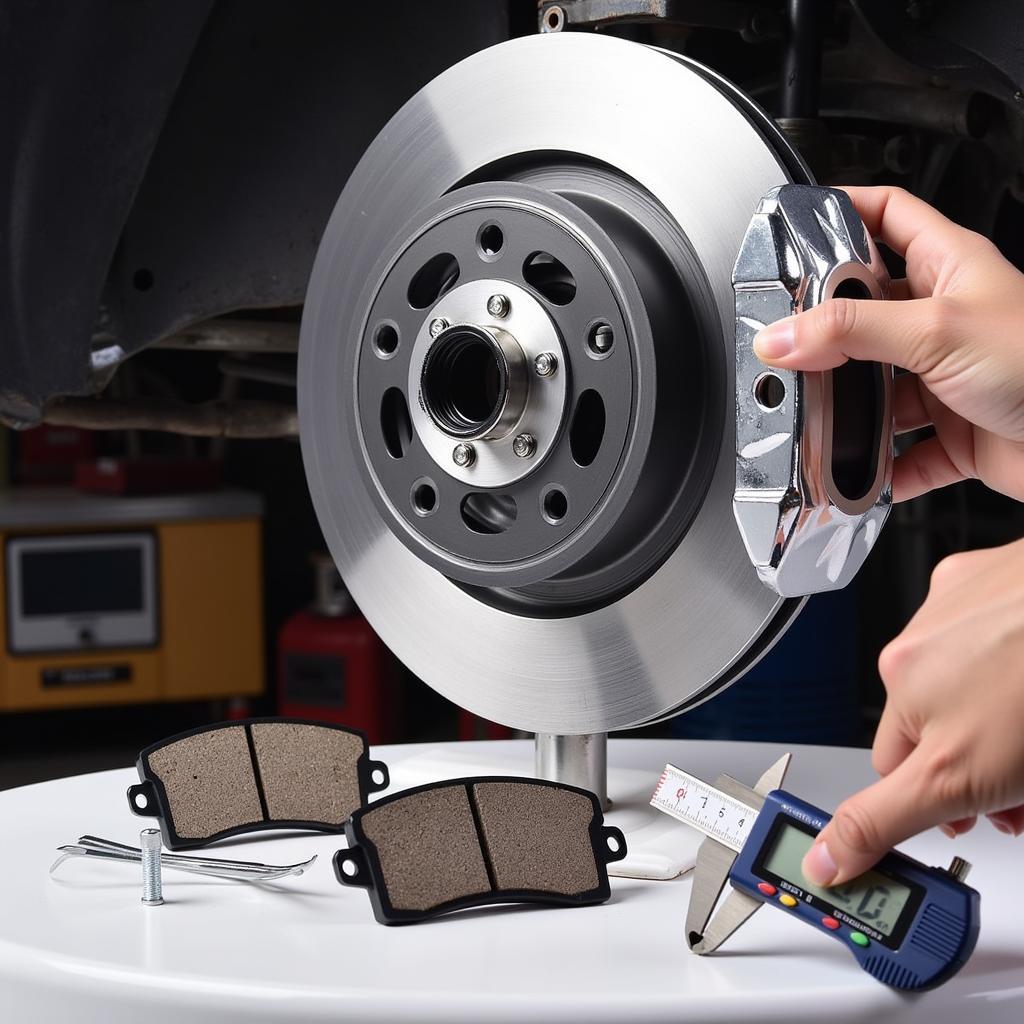Understanding your car’s various sounds can be the key to diagnosing potential problems before they become major headaches. From a subtle whine to a persistent knock, these auditory clues offer valuable insights into your vehicle’s health. This guide helps car owners, mechanics, and technicians interpret these “car conversations” and take appropriate action. After reading this guide, you will be able to understand potential problems of starting your car.
Identifying Common Car Sounds and Their Causes
A squealing sound, for instance, could indicate worn brake pads, while a clicking noise might point towards a failing CV joint. Recognizing these sounds early allows for timely intervention, saving you both time and money in the long run.
Engine Noises: A Symphony of Trouble?
Engine noises are often the most concerning, ranging from subtle taps to loud bangs. A rhythmic ticking sound, especially when the engine is cold, can suggest low oil pressure, a critical issue that demands immediate attention. A deeper knocking sound could indicate worn bearings or piston slap.
 Engine Knocking Sound Diagnosis
Engine Knocking Sound Diagnosis
A high-pitched whine that changes with engine speed might be attributed to a failing alternator or power steering pump. It’s crucial to address these issues quickly to prevent further damage. Understanding the symptoms of car starter problems is also important.
Transmission Troubles: Grinding, Whining, and Slipping
Transmission problems manifest in different ways. A grinding sound when shifting gears often indicates worn synchronizers or low transmission fluid. A whining noise, on the other hand, can be a sign of worn gears or bearings within the transmission. If your car hesitates or struggles to accelerate, you could be experiencing transmission slippage, a serious problem that requires professional attention.
 Transmission Problems: Whining, Grinding and Slipping
Transmission Problems: Whining, Grinding and Slipping
Suspension and Steering System Sounds: Clues to a Bumpy Ride
Suspension and steering issues can also create a cacophony of noises. A clunking sound when going over bumps can signify worn shocks or struts, while a squeaking noise could point towards worn bushings or ball joints. If you hear a clicking sound when turning the steering wheel, a failing CV joint or tie rod end is a likely culprit. Use the car problem worksheet to help you keep track. “Ignoring these sounds can compromise your vehicle’s handling and safety,” warns John Smith, ASE Certified Master Technician.
Brake Noises: Squeals, Grinds, and Groans
Brake noises are often unmistakable and should never be ignored. A high-pitched squeal is a common indicator of worn brake pads. A grinding noise, however, signifies that the brake pads have worn down completely, allowing metal to grind against metal, causing potential damage to the rotors. This situation requires immediate attention.
 Brake Noises: Squealing, Grinding and Groaning
Brake Noises: Squealing, Grinding and Groaning
You can utilize our guide on car problems and analysis for a more comprehensive understanding.
How to Diagnose Car Sounds Effectively
Diagnosing car sounds effectively requires a systematic approach. Start by pinpointing the location and nature of the sound. When does it occur? Does it change with speed, engine RPM, or steering input? These details are crucial for narrowing down the potential causes. Documenting your observations, using a notebook or voice recorder, can be immensely helpful when consulting with a mechanic. “Accurate information is the key to efficient diagnosis,” says Jane Doe, automotive engineer and consultant.
Using Tools and Technology for Accurate Diagnosis
While many car problems can be diagnosed by listening carefully, specialized tools and technology can provide more precise insights. A mechanic’s stethoscope, for example, allows for isolating specific sounds within the engine compartment. Diagnostic scanners can retrieve error codes from the vehicle’s computer, revealing potential issues with various systems. “Modern technology has revolutionized automotive diagnostics,” adds John Smith. Check out suspension cars problem for specific guidance on suspension noise diagnostics.
Conclusion
Listening to your car’s sounds is a crucial aspect of preventative maintenance. By understanding what these sounds mean, you can address potential problems early and avoid costly repairs down the road. Identifying these Car Sounds To Diagnose Problems empowers you to keep your vehicle in top condition, ensuring both safety and reliability. Contact AutoTipPro at +1 (641) 206-8880 or visit our office at 500 N St Mary’s St, San Antonio, TX 78205, United States for expert advice and assistance.







Leave a Reply